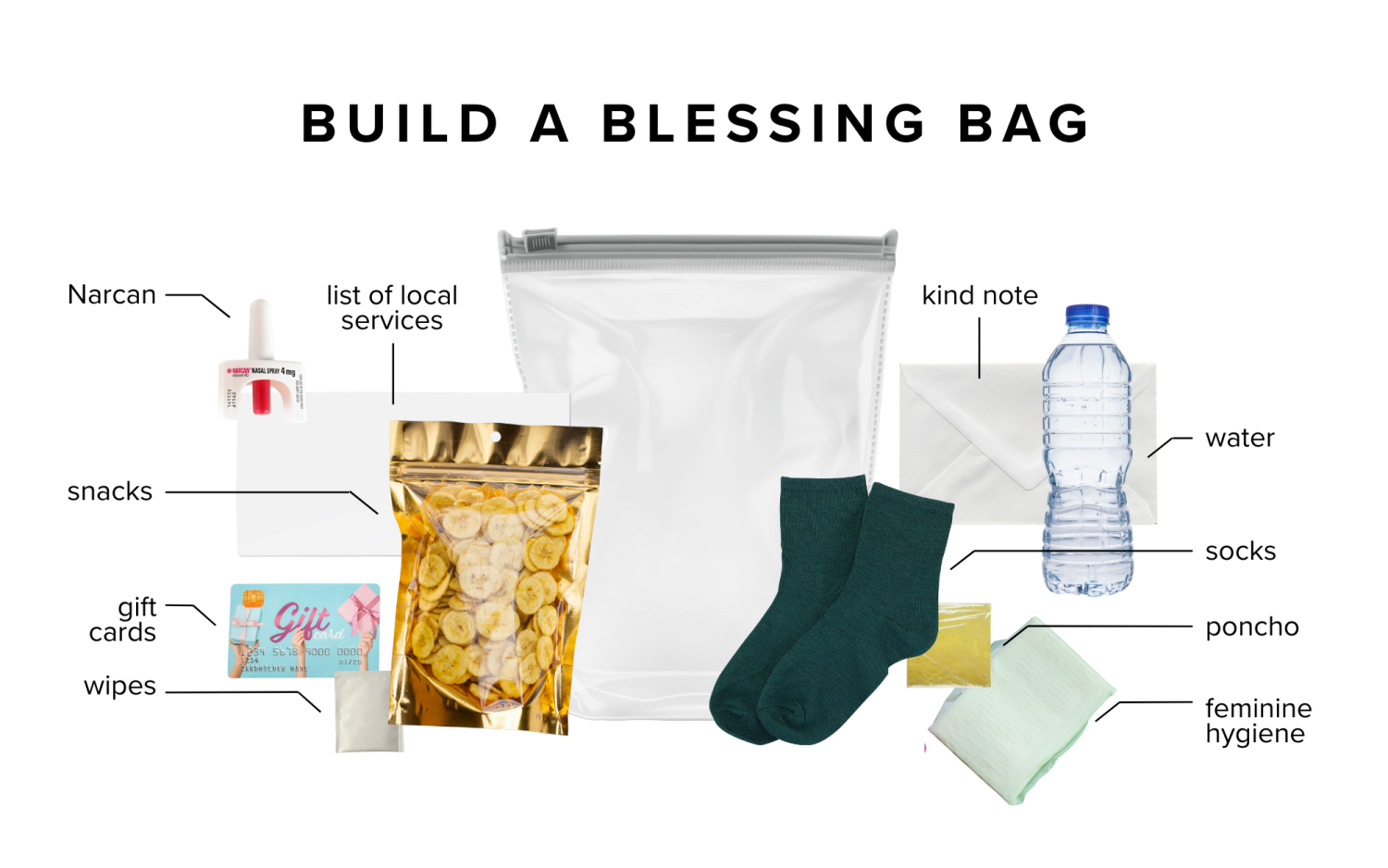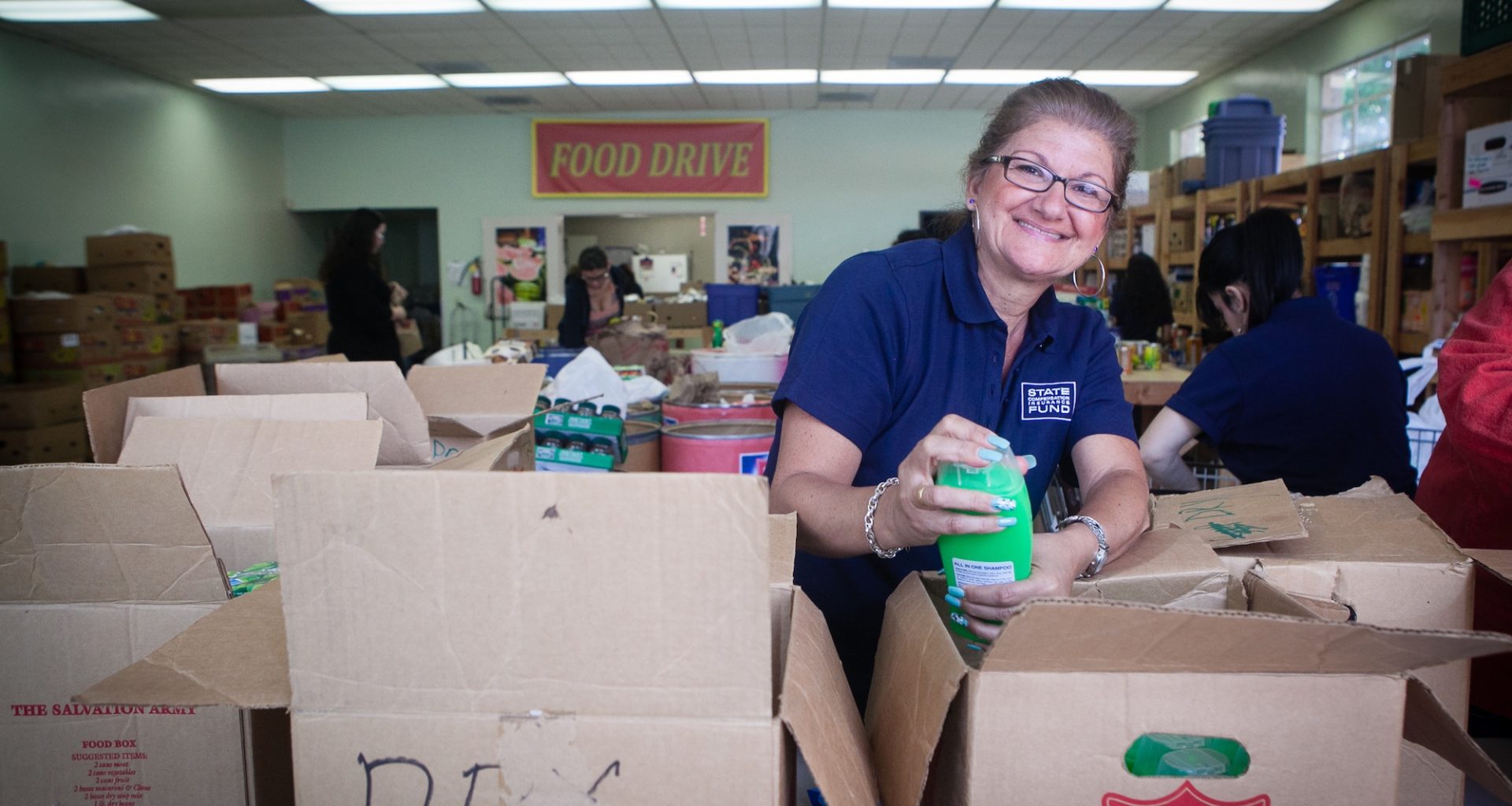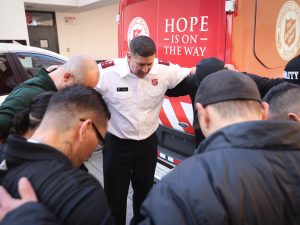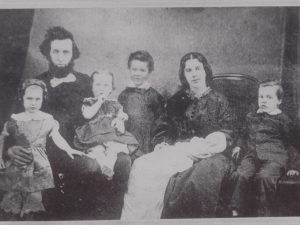Do you ever pause to notice your neighbors on your morning commute? Maybe they’re walking their dog, going for a run or directing traffic in an orange vest.
Or, maybe they’re one of the 653,104 people experiencing homelessness in the U.S.
These neighbors are often overlooked. But they shouldn’t be.
“Sometimes people who are housed don’t give a lot of value to people who are homeless,” said Chief Policy Officer at the National Alliance to End Homelessness Steve Berg on episode 176 of the Do Gooders Podcast: State of Homelessness: Chipping away at a complex crisis. “But these are all members of our community, and they all have something to offer.”
Recognizing the inherent, God-given value of your neighbors in small ways makes a big difference.
And you can start with your commute. By assembling “blessing bags”—gallon-sized bags filled with essential items—and keeping them in your car, you can help uplift your neighbors by meeting some of their most urgent needs.
Here are 10 things to include in a blessing bag for neighbors experiencing homelessness:
1. Gift cards for fast food restaurants
Consider restaurants within walking distance that offer low-cost, filling and nutritious food. Gift cards can allow people experiencing homelessness to eat meals according to their needs and preferences, leading to less food waste and more dignity.
2. Warm socks
During winter months, socks are crucial for staying warm, but they wear out easily. Make sure your neighbors have a fresh, dry pair that’s extra durable.
3. Rain poncho
Look for a compact poncho in a bright color that will stand out to drivers navigating roads with poor visibility in the rain.
4. Water bottle
Heat is the leading cause of weather-related deaths in the U.S., with the National Weather Service reporting 117 deaths in 2024. And unsheltered people are particularly vulnerable to heat.
Thankfully, the best intervention is simple: water.
When Lt. Colonel Ivan Wild was the Divisional Commander of The Salvation Army Southwest Division, he encouraged community partners to take water with them in their car on episode 186 of the Do Gooders Podcast: State of Disaster: Preparing for a future with hotter summers.
“That water can save someone’s life,” Wild said. “So when somebody approaches you and they look thirsty or they’re asking for money at least you can offer them water, and then give them a direction of where to go.”
5. Information about local services
Does your community have food pantries, clothing distributions, rehabilitation centers, overnight shelters or job skills training programs?
What about unique services addressing other needs, like The Salvation Army Anacortes (Washington) Corps’s bike repair ministry or the secure storage solutions offered by The Salvation Army Glendale-Burbank (California) Corps?
Include operating hours and a small map to each program.
6. Snacks
Look for pre-packed, nutrient-dense snacks that are high in protein or vitamin C.
Packets of trail mix, protein bars, bags of nuts, peanut-butter pretzels, juice boxes, beef jerky and dried fruit are all nutritious, shelf-stable options.
7. Narcan
Around 25 percent of unhoused people struggle with drug abuse. And people experiencing homelessness are nine times more likely to die of an opioid overdose than their housed counterparts, according to the Substance Abuse and Mental Health Services Administration.
Enter Narcan: an over-the-counter medication that can quickly reverse an opioid overdose.
If a person struggles with addiction, Narcan can save their life. In fact, the CDC reported a 27 percent decline in overdose deaths in 2024, a trend experts partially attribute to the effectiveness and availability of Narcan.
Order some online or swing by your local pharmacy to help equip your neighbors with the power to prevent an overdose.

8. Moist towelettes
Wipes offer a quick and easy way to wash up without access to running water. You can also include other toiletries like toothpaste, lip balm and deodorant.
9. Feminine hygiene supplies
Menstruation poses a significant challenge for women experiencing homelessness “due to logistical issues related to privacy, limited cleaning facilities, toilets and sanitary products,” according to a study published in Women & Health.
The study found, “Forgoing food in order to purchase sanitary products was a norm, and it was sometimes necessary to shoplift in order to manage menses.” As a result, many women reported infections or stained clothing, burdening them with extra expenses and loss of dignity.
Giving high-quality feminine hygiene products to neighbors in need helps ease that burden.
10. Note of encouragement
The lack of privacy and human connection that accompany homelessness—not to mention the increased vulnerability to violence—takes a toll on a person’s mental and spiritual well-being.
A note of encouragement, prayer or pocket Bible can offer a little bit of hope for someone going through an undeniably difficult time. Though true mental and spiritual well-being likely requires more than a note, small gestures can let someone know you recognize their inherent human dignity.
Do Good:
- Did you know The Salvation Army served some 27 million Americans last year fighting hunger, homelessness, substance abuse and more? Where can you help? Take our quiz to find your cause and learn how you can join in today.












